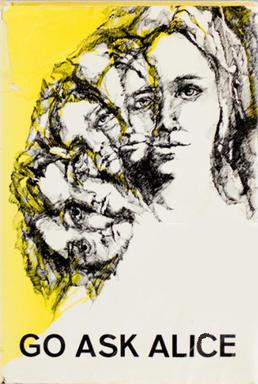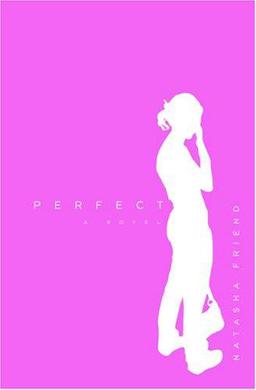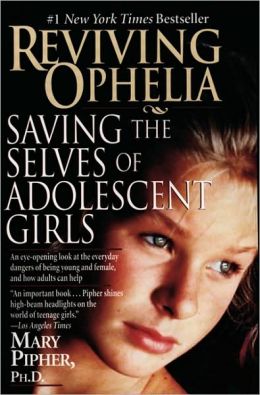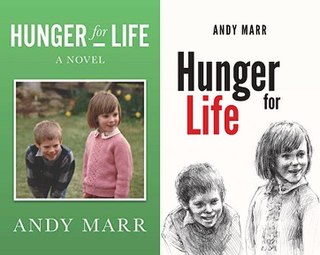An eating disorder is a mental disorder defined by abnormal eating behaviors that negatively affect a person's physical or mental health. Types of eating disorders include binge eating disorder, where the patient eats a large amount in a short period of time; anorexia nervosa, where the person has an intense fear of gaining weight and restricts food or overexercises to manage this fear; bulimia nervosa, where individuals eat a large quantity (binging) then try to rid themselves of the food (purging); pica, where the patient eats non-food items; rumination syndrome, where the patient regurgitates undigested or minimally digested food; avoidant/restrictive food intake disorder (ARFID), where people have a reduced or selective food intake due to some psychological reasons; and a group of other specified feeding or eating disorders. Anxiety disorders, depression and substance abuse are common among people with eating disorders. These disorders do not include obesity. People often experience comorbidity between an eating disorder and OCD. It is estimated 20-60% of patients with an ED have a history of OCD.

Bulimia nervosa, also known as simply bulimia, is an eating disorder characterized by binge eating followed by purging or fasting, and excessive concern with body shape and weight. The aim of this activity is to expel the body of calories eaten from the binging phase of the process. Binge eating refers to eating a large amount of food in a short amount of time. Purging refers to the attempts to get rid of the food consumed. This may be done by vomiting or taking laxatives.

Go Ask Alice is a 1971 book about a teenage girl who develops a drug addiction at age 15 and runs away from home on a journey of self-destructive escapism. Attributed to "Anonymous", the book is in diary form, and was originally presented as being the edited actual diary of the unnamed teenage protagonist. Questions about the book's authenticity and true authorship began to arise in the late 1970s, and Beatrice Sparks is now generally viewed as the author of the found manuscript–styled fictional document. Sparks went on to write numerous other books purporting to be real diaries of troubled teenagers. Some sources have also named Linda Glovach as a co-author of the book. Nevertheless, its popularity has endured, and as of 2014 it had remained continuously in print since its publication over four decades earlier.
Promotion of anorexia is the promotion of behaviors related to the eating disorder anorexia nervosa. It is often referred to simply as pro-ana or ana. The lesser-used term pro-mia refers likewise to bulimia nervosa and is sometimes used interchangeably with pro-ana. Pro-ana groups differ widely in their stances. Most claim that they exist mainly as a non-judgmental environment for anorexics; a place to turn to, to discuss their illness, and to support those who choose to enter recovery. Others deny anorexia nervosa is a mental illness and claim instead that it is a lifestyle choice that should be respected by doctors and family.
Beatrice Ruby Mathews Sparks was a Mormon youth counselor, author, and serial hoaxer, known primarily for producing books purporting to be the "real diaries" of troubled teenagers. The books deal with topical issues such as drug abuse, Satanism, teenage pregnancy, and AIDS, and are presented as cautionary tales. Although Sparks presented herself as merely the discoverer and editor of the diaries, records at the U.S. Copyright Office list her as the sole author for all but two of them, indicating that the books were fabricated and fictional.
Christina "Christy" Renée Henrich was an American artistic gymnast. Her death from anorexia nervosa at age 22 led to major reforms in the way women's gymnastics is covered on television and in the news media. She was coached by Al Fong.

The Eating Attitudes Test, created by David Garner, is a widely used 26-item, standardized self-reported questionnaire of symptoms and concerns characteristic of eating disorders. The EAT is useful in assessing "eating disorder risk" in high school, college and other special risk samples such as athletes. EAT has been extremely effective in screening for anorexia nervosa in many populations.
Ellen West (1888–1921) was a patient of Dr. Ludwig Binswanger who had anorexia nervosa. She became a famous example of existential analysis who died by suicide at age 33 by poisoning herself.
Purging disorder is an eating disorder characterized by the DSM-5 as self-induced vomiting, or misuse of laxatives, diuretics, or enemas to forcefully evacuate matter from the body. Purging disorder differs from bulimia nervosa (BN) because individuals do not consume a large amount of food before they purge. In current diagnostic systems, purging disorder is a form of other specified feeding or eating disorder. Research indicates that purging disorder, while not rare, is not as commonly found as anorexia nervosa or bulimia nervosa. This syndrome is associated with clinically significant levels of distress, and that it appears to be distinct from bulimia nervosa on measures of hunger and ability to control food intake. Some of the signs of purging disorder are frequent trips to the bathroom directly after a meal, frequent use of laxatives, and obsession over one's appearance and weight. Other signs include swollen cheeks, popped blood vessels in the eyes, and clear teeth which are all signs of excessive vomiting.
Maudsley family therapy also known as family-based treatment or Maudsley approach, is a family therapy for the treatment of anorexia nervosa devised by Christopher Dare and colleagues at the Maudsley Hospital in London. A comparison of family to individual therapy was conducted with eighty anorexia patients. The study showed family therapy to be the more effective approach in patients under 18 and within 3 years of the onset of their illness. Subsequent research confirmed the efficacy of family-based treatment for teens with anorexia nervosa. Family-based treatment has been adapted for bulimia nervosa and showed promising results in a randomized controlled trial comparing it to supportive individual therapy.

Anorexia nervosa, often referred to simply as anorexia, is an eating disorder characterized by low weight, food restriction, body image disturbance, fear of gaining weight, and an overpowering desire to be thin. Anorexia is a term of Greek origin: an- and orexis, translating literally to "a loss of appetite"; the adjective nervosa indicating the functional and non-organic nature of the disorder. Anorexia nervosa was coined by Gull in 1873 but, despite literal translation, the feeling of hunger is frequently present and the pathological control of this instinct is a source of satisfaction for the patients.

Perfect is a children's novel by American author Natasha Friend, first published in 2004 by Milkweed Editions. Perfect won the Milkweed Prize for Children's Literature in 2004. This book is about a young girl's struggle with bulimia nervosa.

Reviving Ophelia: Saving the Selves of Adolescent Girls is a 1994 book written by Mary Pipher. This book takes a look at the effects of societal pressures on American adolescent girls, and utilizes many case studies from the author's experience as a therapist. The book has been described as a "call to arms" and highlights the increased levels of sexism and violence that affect young females. Pipher asserts that whilst the feminist movement has aided adult women to become empowered, teenagers have been neglected and require intensive support due to their undeveloped maturity.

Abzurdah is a 2006 autobiographical book by Argentine author Cielo Latini. It was adapted to an eponymous film in 2015.

To the Bone is a 2017 American drama film, written and directed by Marti Noxon. The film follows a young woman, portrayed by Lily Collins, as she battles anorexia. The film premiered in competition at the Sundance Film Festival on January 22, 2017, as a contender in the U.S. Dramatic Competition. It was released worldwide on Netflix on July 14, 2017. Netflix's release of the film was met with controversy, with some arguing that the film glamorises anorexia.

Cielo Latini is an Argentine writer. As a teenager, she wrote Abzurdah, an autobiography that detailed her problems with anorexia and bulimia. The book was a success, and got a film adaption in 2015 starring María Eugenia Suárez.

Irreversible Damage: The Transgender Craze Seducing Our Daughters is a 2020 book by Abigail Shrier, published by Regnery Publishing, which endorses the contentious concept of rapid-onset gender dysphoria. ROGD is not recognized as a medical diagnosis by any major professional institution and is not backed by credible scientific evidence.

Hunger for Life is a 2019 coming-of-age novel by Scottish author Andy Marr, which explores a man struggling between his anorexic sister, his aging parents, and his new free-spirited Austrian girlfriend, Hannah. Originally a self-published novel via Kindle Direct Publishing, the book received broader critical attention and popularity than expected, particularly for its accurate portrayal of eating disorders. The original book had an emerald-green cover with a photograph of two children on it; later versions had conceptual art sketches in black-and-white pencil.

Letting Ana Go is a 2013 book about a girl suffering from anorexia nervosa, published anonymously with no discernible author. The main character, "Ana", is a sophomore student and athletic track star who keeps a strict food diary and finds herself growing increasingly distant from her own family, while her own mother struggles with newfound morbid obesity and separation from her husband. The book calls into question the mental healthcare system in The United States and the financial cost of such care as a barrier to sufferers of issues like eating disorders. Letting Ana Go was published under various imprints of Simon & Schuster in 2013.











